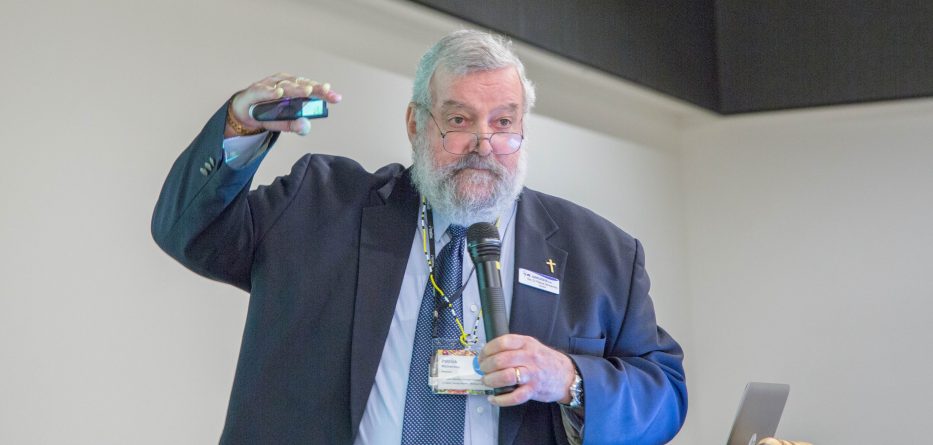On 1 February 2019, the Columban Centre for Christian-Muslim Relations hosted a reflection on the future of the Catholic Church in Australia. We followed the process proposed by the 2020 Plenary Council, but mindful of our particular work at the Centre, we focussed on interreligious dialogue. We invited representatives from the Broken Bay, Parramatta and Sydney dioceses to widen and deepen our reflection. Together we sought how God is seeking to shape the church’s relations with people of other faiths.
After introductions and a prolonged period in silent prayer together, we gathered in small groups and shared our experience of interreligious dialogue. Many participants expressed how their views were shaped by relations with people of other faiths.
Through meeting others, getting to know the person directly in front of them, hearing their stories and learning about their lives, participants felt that “categories and divisions fell away.”
They learned how Muslims felt “battered” by Islamophobia, the difficulties that migrants and refugees from other religions face in settling into a new land, and the struggles specific to women of faith. These personal encounters opened hearts and minds to “our brothers and sisters of other religions.”
Energised by these memories, we expressed a hope that the Church in Australia would encourage and enable similar transformative encounters between other Catholics and people of different religions.
Australian society is made up of people from virtually every nation and religion in the world. We are home to large migrant communities over many generations. The Church too is made up of peoples from many nations.
We agreed that if Catholics are to engage with their neighbours, in our multicultural, multi-religious Australian society, this means reaching out to people of all faiths and belief systems. If not, the Church will become isolated and turned in on itself. In fact, it would not be “catholic” if it does not reach out to others universally, especially to the poor and those on the margins.
Our reflection group also acknowledged the significant body of teaching on interreligious dialogue that the Church has developed during the past 60 years. This includes Vatican II’s ground-breaking Nostra Aetate, and the subsequent teaching documents of the magisterium, especially the teaching and example of recent popes.
Yet we also admitted that this teaching often remains unknown. We hope that this teaching will be made readily available so that interreligious dialogue becomes an ordinary part of everyday parish life, preached from the pulpit, prayed about in the liturgy, and practised by parishioners in their daily lives.
Knowing that aspirations alone are not sufficient to bring about greater involvement in interreligious dialogue, we proposed concrete ideas, including:
- Where they don’t exist, establishing diocesan commissions for interfaith relations.
- We also noted that interfaith relations at public multi-faith events are best done ecumenically i.e. a single Christian representative speaks on behalf of all Christians, rather than each Christian denomination speak for itself.
- Joint advocacy on social justice issues with leaders of various faiths, since consultation and implementation from a wider cross-section of society will produce better and more effective solutions.
- Educating Catholics that dialogue is a participation in mission, not a betrayal of it.
- Facilitating courses of adult education/formation for seminarians, catechists, teachers and pastoral workers on the essential role of interreligious dialogue in the evangelising mission of the church.
- Forming Catholics to fulfil their responsibility to carry out this element of the Church’s mission with competence, confidence, cogency, and fidelity to the doctrinal tradition.
- Preparing young people for interfaith relations by providing opportunities to engage in interreligious dialogue and supporting them with scholarships to learn about it.
- Ensuring gender balance in parish and diocesan interfaith structures so that women participate equally in growing relations with people of other faiths.
- Addressing the issues of violence against women and violations of their human dignity by jointly tackling religious texts that are manipulated by those in power to disadvantage women.
We hope and pray that these and many other submissions will help the 2020 Plenary Council come up with a theoretical framework and practical directives to guide Catholics in a positive, committed, Christian engagement with people of other faiths.
Rev Dr Patrick McInerney, Director, Columban Centre for Christian-Muslim Relations.








